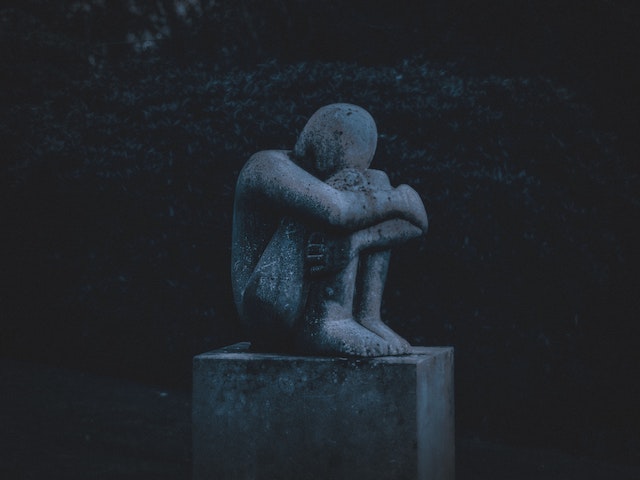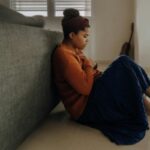According to the World Health Organization, depression affects 264 million people worldwide. If you haven’t experienced it personally, you probably know someone who has.
And yet, despite how pervasive it is, it is still widely minimized or misunderstood. Or perhaps it’s more accurate to say that people struggling with depression are often misunderstood by those who haven’t endured it.
Whether or not you’ve been clinically depressed, you undoubtedly know what it’s like to feel deep sadness. However, there’s a big distinction between depression and grief in response to a loss, or situational sadness (which is just as it sounds, a dysphoric mood triggered by a negative external event).
Depression and sadness are not the same
In contrast, clinical depression is not situational by nature. Although of course it may be exacerbated by a situation, it is not limited by it, and it exists independent of the loss or the circumstance. It doesn’t go away when the situation is resolved.
Because depression can be misunderstood by those who haven’t experienced it, I believe it is vital to learn more about it. Depression isn’t something someone can “fix” with the right word or phrase or gesture, but insensitivity (even unintended insensitivity) is likely to make the person dealing with depression feel worse, unnecessarily so.
What follows is a reflection from a woman who has experienced depression, looking back on how it feels to be overwhelmed by depression.*
When I’m depressed, I am sure this will never end
Confession: I’m an introvert. And, unlike some introverts I know who wish they were more “outgoing,” I like being an introvert. Although I value and nurture the relatively few friendships (by choice) I have, I’ve always liked my time alone.

Even as a young child, I’d much rather be alone with a book under a tree than at a classmate’s big birthday bash (where I’d inevitably be looking at the clock and figuring out how long till my mom picked me up).
But when I’m living through an episode of depression, being alone with myself feels like a prison sentence. Without a release date.
I feel trapped within myself.
Gone is the contented introvert. And yet, I certainly don’t want to be with others, either. Not even remotely.
Whereas without my depression, being alone with myself feels nurturing and gives me energy and clarity, when I’m depressed, just being me feels like a punishment. And even though I’ve lived through it before and come out the other side, each time I fall into the prison of depression, I am sure — absolutely positive — that I will never make it out of this one.
The certainty of that is shocking, really. At least from this vantage point. Why do I believe it so fully? Why don’t I rely on experience and reassure myself that I came out of it all the other times, and therefore I’m likely to come out of it this time too?
When I’m in it, I am certain this hell will never end.
When I’m depressed, I believe all the negative self-talk (and there’s only negative self-talk)
Again, from my perspective here and now, I can see myself differently. I can admit that like everyone, I have strengths and weaknesses, good traits and bad traits. But when I’m depressed, it’s like the good has been totally wiped away. And the bad is magnified and distorted until I’m convinced there’s no one on the planet as rotten as me.
Also, when I’m deep in the throes of depression, I don’t need “evidence” to categorize myself this way. It seems to come unbidden.
I once worked with a counselor who asked for “proof” of all the negative stuff I told myself about me. I’m sure that was in the hopes of showing me that my mental narrator was a highly unreliable one.
But that exercise didn’t get me anywhere in the long run, because maybe what that counselor didn’t understand was that the vicious things I think about myself become the proof itself when I’m depressed. Things like: “you’re unlovable”; “you don’t deserve to be happy”; “all those work successes you’ve had? Total flukes, you’re a fake, just an impostor.”
All that feels like objective truth, not opinion. I don’t need to become convinced of their truth, I already am by the time I “say” them in my head. And I feel powerless to say the opposite of them, to even consider maybe they’re not true.
Now, standing safely on the shore and looking back over the water, I can see when I felt like I was drowning that I felt unlovable, I felt like I was an impostor when I’d succeeded at work . . . not that I was unlovable or that I was an impostor . . . I only felt that way.
But being depressed demolishes that “I felt” bridge, leaving only “You are” in its place.
The thoughts feel like they’re coming from some unquestionable authority, some source that knows me better than I do. Now I can see it for what that was: depression’s distortion. But during the depression, it’s another room in hell, a room without an exit.
It’s not only my own negative thoughts about myself that feel like unquestionable truth, however. When I’m depressed, I’m unable to believe the positive things about me that friends and family tell me. They believe in me. They are sure I’ll come through this again. They know I am strong, and I am worthy of happiness.
I can’t believe any of it when I can only hear depression’s howling.
When I’m depressed, I try to escape the pain by being not-me
As I’ve said, it hurts to be me when I’m depressed. So if I’m to get any relief at all, I need to try to escape being me. What does that look like? It looks like me engaging in behaviors that don’t reflect who I am when I’m not depressed (blowing off work deadlines, sleeping all the time, ignoring friends, not taking care of my health).
Usually I take pride in my work (I’m a graphic designer), but when I’m depressed my work serves as a cruel reminder of another me, the one I can’t access from the unmoored skiff I’m adrift on. I’m sure I’ll only let clients down if I try to work — not that I even have the energy or mental clarity to try — so just avoiding work feels like the only option.
One year I went through my calendar and canceled every self-care appointment I had made: dental cleanings, physical exams, optometrist visit, etc., so sure was I that I wouldn’t ever be in the place again where I cared about such things.
I tend not to respond to my friends’ texts when I’m depressed. I don’t know what to say. I know I’m letting them down, I’m letting me down, but I can’t bridge the gap between me with and without depression’s fog pressing down on me. So I don’t try.
Now it’s easy to say, “Oh, that wasn’t me. Those behaviors are so uncharacteristic of me,” but actually, that was me. That was me with depression. I know depression is personal and different people will experience it in different ways, but for me, those dismissive (even neglectful) behaviors are characteristics of my depression. They’re not who I am by any means, but they are part of the shape depression takes for me.
Understanding all this when I’m not steamrolled by depression is important. Understanding alone won’t head off the next episode of depression, but memorializing the insights in writing can serve as a reminder that there will be life after depression when I’m in too much pain to lift my head up and see there’s a future out there.
* * *
[*Although the details in this article are imagined by me, the writing is informed by my 20 years working with clients struggling with depression.]
Rich Nicastro, PhD
Licensed Clinical Psychologist





